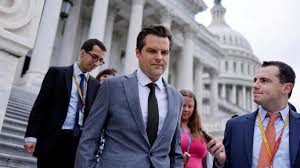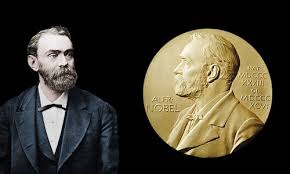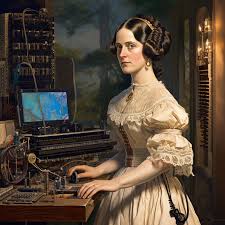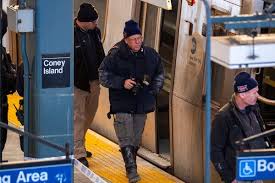The archaeological mystery of Stonehenge's long-lost megaliths
Catagory:Reading
Author:Mike Pitts
Posted Date:12/23/2024
Posted By:utopia online
Stand at Stonehenge on midwinter day, 21 December, as the Sun is setting you can experience a striking event – provided the sky is clear. Position yourself between the tall, outlying Heel Stone and the stone circle, and look south-west through the megaliths. In the closing darkness they appear like a huge crumbling wall, orange light slanting through vertical fissures. In the last quick moments, the Sun disappears from a window formed by two great vertical stones and the horizontal lintel they support. It's dark and cold. Stonehenge, it feels, has swallowed the Sun.
My archaeological colleagues and I are convinced that this alignment is no coincidence: it was designed by the monument's builders. But were you able to see this annual drama 4,500 years ago, the spectacle would be yet more impressive. The solstice sightline was marked by as many as six futher upright pairs. Of the greatest of these – the tallest and the most finely carved stones on the site – now just a single megalith known as Stone 56 is left. A projecting bulge on the top of this stone once fitted into a giant lintel. Now that tenon rises exposed and useless.
And many more upright stones have gone. What happened to these missing stones? Who took them down and where did they go? How do we know they were once there? Can we picture what the completed Stonehenge looked like? Indeed, was it ever finished at all?These are questions that archaeologists like myself have asked for centuries. We can't answer any of them with certainty. But a long, active search has brought my colleagues and I closer. Through survey, excavation and geological studies have helped to clarify – sometimes in the most surprising ways – one of the big puzzles of Stonehenge: is that all there was?
When we visit Stonehenge today, what we see is almost exactly how it looked when the first accurate plan was made in 1740 by John Wood, a leading architect of his time. The first realistic sketches date from the 16th Century, and while they skimp on detail, the impression remains that little has changed. But don't be fooled. Half the stones have been moved.
That happened between 1901 and 1964, when the authorities were concerned that megaliths might fall on visitors. These were justifiable fears: several large stones had long been propped up with timbers, and lintels skewed threateningly. Many of the uprights were straightened and set in concrete, and a few known to have fallen in historic times were restored. The monument was deliberately secured to look as it had when recorded by John Wood, but archaeological excavations conducted alongside the engineering works revealed another, different Stonehenge. For the first time, there was proof that not all the stones were still there.Such a suspicion had first been raised in 1666 by John Aubrey, biographer and antiquary, who saw five "cavities in the ground" just inside the circular bank and ditch that surround the present stones at a distance. He thought the hollows were created by the removal of megaliths, suggesting there had once been an outer stone circle 85m (280ft) across that is now entirely missing. Excavation in that area in the 1920s revealed a perfect circle of 56 pits (assuming regular spacing through unexcavated areas) now known as the Aubrey Holes. Two further unexpected pit rings were found closer to the existing stones. At the time, it was concluded that none of these had held megaliths, though more recently some archaeologists have come to think that the Aubrey Holes are in fact all that remain of an expansive stone circle.Restoration and excavation resumed in the 1950s and 60s, when more buried holes were found, this time in amongst the present standing stones. Pits in two closely nested half-circles very likely held small megaliths, and other pits indicate that these stones were taken down and rearranged – with the addition of more stones – in a concentric oval and circle. These two were later adjusted to form the present arrangement of a circle and open-ended horseshoe, of which many stones have gone.
In 1979 my own excavation discovered a pit beside the Heel Stone. On the bottom the chalk had been crushed by the weight of a large stone, which would have complemented the present megalith. It was an entirely unexpected find for a young archaeologist – made on the verge of the road as people were gathering for the then infamous Stonehenge pop festival – that has affected how I think about the site ever since: I never take anything for granted. With the Heel Stone, the missing stone would have created a pair either side of the solstice alignment – to frame, looking out to the north-east, the rising midsummer Sun.By then, it was clear that Stonehenge had a complex history spanning as much as a thousand years. Archaeologists knew that many stones were missing. How many was an open question. The earlier arrangements were poorly understood, and some archaeologists were suggesting that the stone circle itself had never been finished. Its south-west side had only one standing megalith, and there seemed to be insufficient fallen pieces to complete the ring.
In one striking instance, a sarsen lintel looked like a sausage roll compared to its sharp-angled companions that had remained high out of reachThe plot thickened in 2009, when a previously unknown stone circle was discovered in an excavation a few minutes' walk away. Some 25 pits would have held megaliths the size of the small ones at Stonehenge. Every excavated pit was empty.
At this point it helps to know more about what I've called the large and small stones. They are composed of different types of rock, which has affected what has gone and what remains. The big stones – the ones that box the setting midwinter Sun and create the famous Stonehenge silhouette – are formed of sarsen, a very hard relatively local sandstone. The small ones, known collectively as bluestones, are a mix of softer rocks, most brought to the site from south-west Wales. If the Aubrey Holes held megaliths, they were only big enough for bluestones – as were pits at the nearby missing circle, whose stones were probably moved to Stonehenge.
Reports in earlier centuries tell of visitors knocking off bits of the stones to keep as souvenirs. Archaeologists assumed these stories were exaggerated, but in 2012 a laser survey of the megaliths revealed the extent of damage. Hardly a stone was spared by the hammers – it was said in the 19th Century you could hire them in nearby Amesbury. In one striking instance, a sarsen lintel that had fallen in 1797 and been re-erected in 1958 looked like a sausage roll compared to its sharp-angled companions that had remained high out of reach – due to the extent of the rock chiselled away.
Between the circle and the Heel Stone, a large sarsen, known as the Slaughter Stone, lies on the ground, one end scored by hammer and chisel holes as if someone had been interrupted in the midst of stealing a part. Excavation in the 1920s found a large pit beside it. Had the stone once standing there been broken up and taken away? Or was it moved thousands of years ago to stand elsewhere on the site?
Perhaps the sarsen circle is now incomplete on the south-west side because the stones there were broken up in recent centuries too. We may never know their fate, but in 2013 after a wet spring and early summer, custodians noticed marks in the now parched grass revealing pits for all the missing stones. It seems the original megaliths there were thinner and less regular, and thus easier to break – implying that was the "back" of the circle.Despite searching, no sarsen that was once part of Stonehenge has ever been found away from the monument. It's a different story with the bluestones. An infamous boulder known as the Boles Barrow Stone was given to Salisbury Museum in 1934 by the writer, Siegfried Sassoon, who spotted it in his garden after moving into a new home not far from Stonehenge. This, it was once argued, was proof that a glacier, not Neolithic people, brought all the bluestones to Salisbury Plain. Geology has never backed that case, and archaeologists now agree that the Boles Barrow Stone must have been taken from Stonehenge in the recent past.
Excavation has shown that many bluestones, easier to break than the sarsens, survive as little more than stumps and scattered debris. There are hints from excavations that some of this damage occurred in Roman times, and perhaps even in the Bronze Age, not many centuries after the stones had been erected. One theory is that pieces were thought to have healing powers.
In one case, however, we know exactly who took some chips, when and why. They unlocked one of the most remarkable discoveries ever made about Stonehenge.
At the centre of the monument lies the Altar Stone. It is the only sandstone bluestone, at first thought to be of South Wales origin. However, intensive research by a British geological team led them to suggest it came from northern England or Scotland. They identified two chips from the stone in museums, one knocked off for examination in 1844, the other found during excavation in the 1920s. They sent samples from these chips to an Australian team, who were able to use cutting-edge technology to show, in 2024, the Altar Stone had come from the far north-east of Scotland. The most-travelled megalith at Stonehenge had finally been tracked to its source, after tiny pieces of it had been round the world and back again.


.jpg)














 👁 :53
👁 :53
 👁 :9
👁 :9
 👁 :145
👁 :145
 👁 :67
👁 :67
 👁 :46
👁 :46
 👁 :39
👁 :39
 👁 :10
👁 :10
 👁 :
👁 :